Field Assistants & Technicians
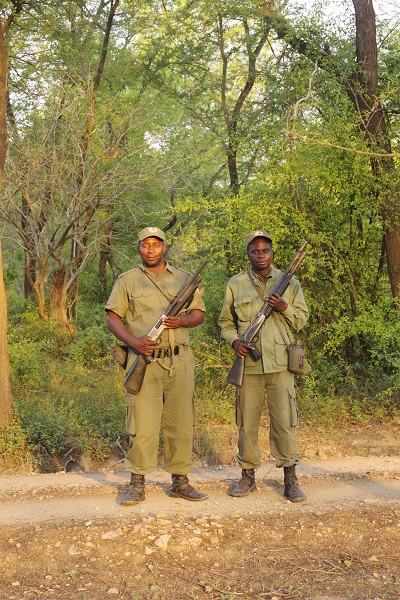
Sergio (left) and Verinca (right), two of the many rangers we have worked with in Gorongosa National Park - photograph by Lynn Lewis-Bevan
The Rangers of Gorongosa National Park, Mozambique
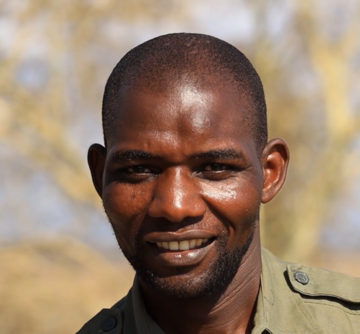
Video interview with subtitles available in English.
Sulemane João Damicolo
Sulemane - Through the lens of our Fiscais (Episode 1)
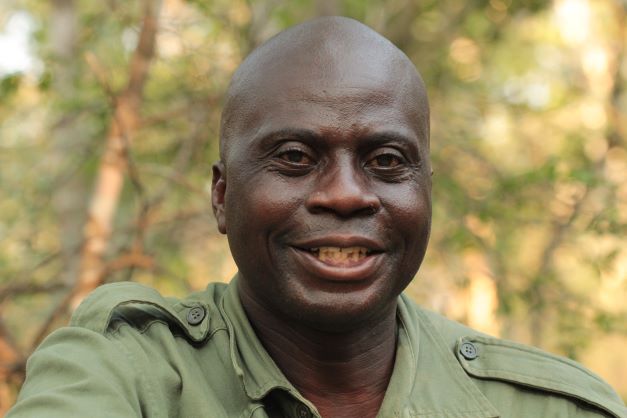
Gonçalves Verinca
Daniel Maveneco Mamenhane
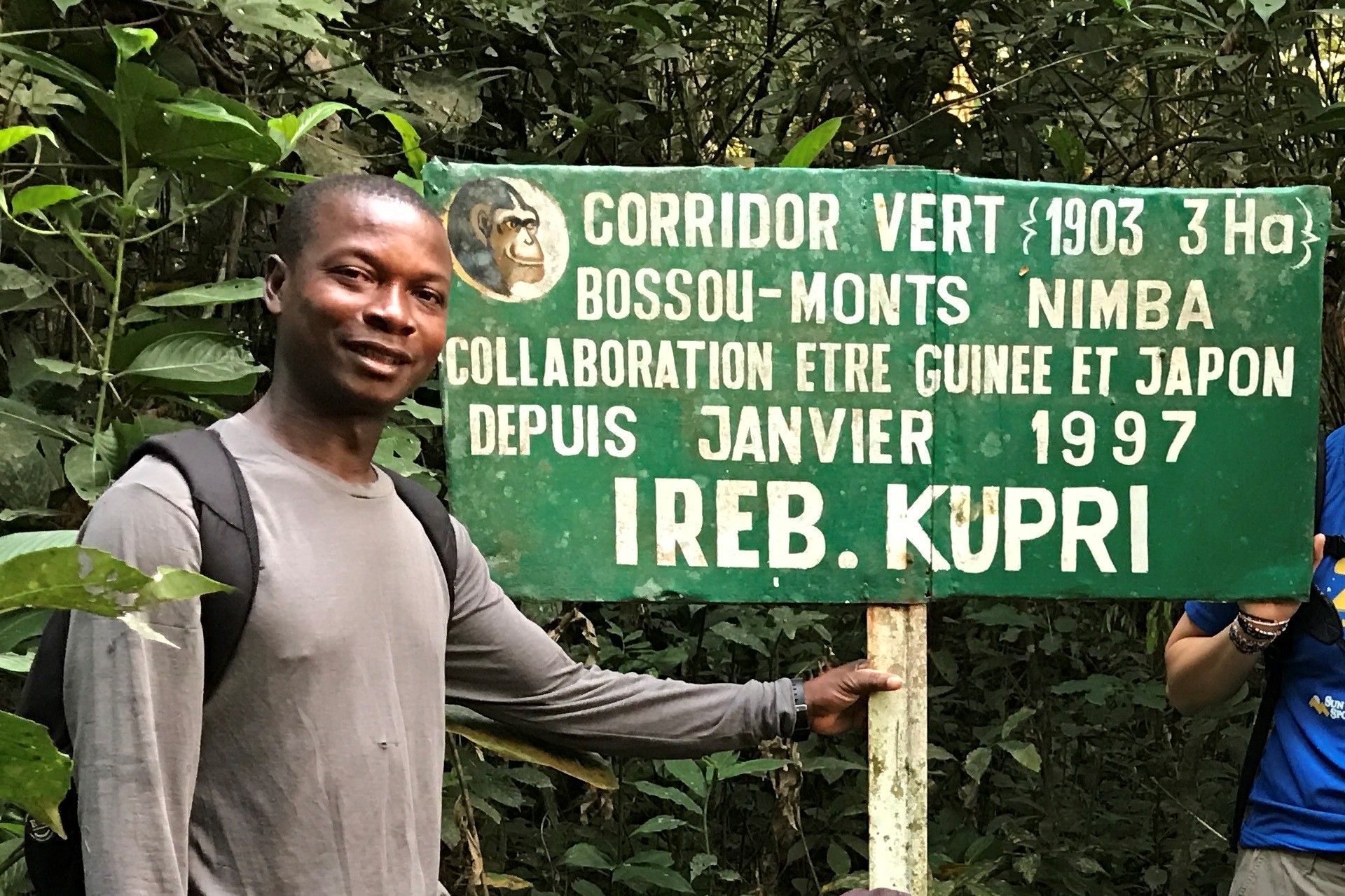
Henry Didier Camara
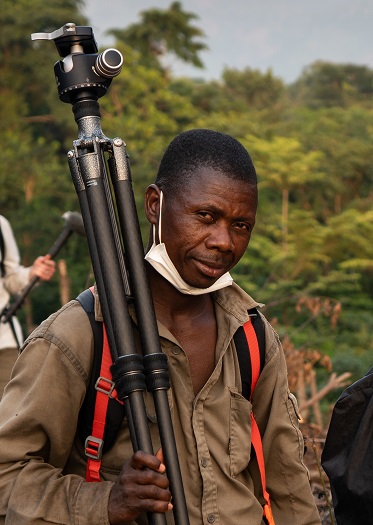
Cé Vincent Mami
[FR] Vincent est le plus récent ajout à l'équipe de Bossou. Il a commencé à travailler en 2010 et est un apprenant passionné. Il aime observer les chimpanzés de Bossou et est curieux de comprendre leur comportement. Vincent est attentif aux détails et un expert opérateur de filmage vidéo et de rédiger des notes détaillées sur les comportements extraordinaires et quotidiens de la communauté des chimpanzés. En 2017, il a assisté une équipe de tournage en visite dans leurs opérations cinématographiques pour un court métrage documentaire avec les chimpanzés de Bossou. Le film a été présenté en première au DC Environmental Film Festival (DCEFF) en 2020 et peut être visionné ici.
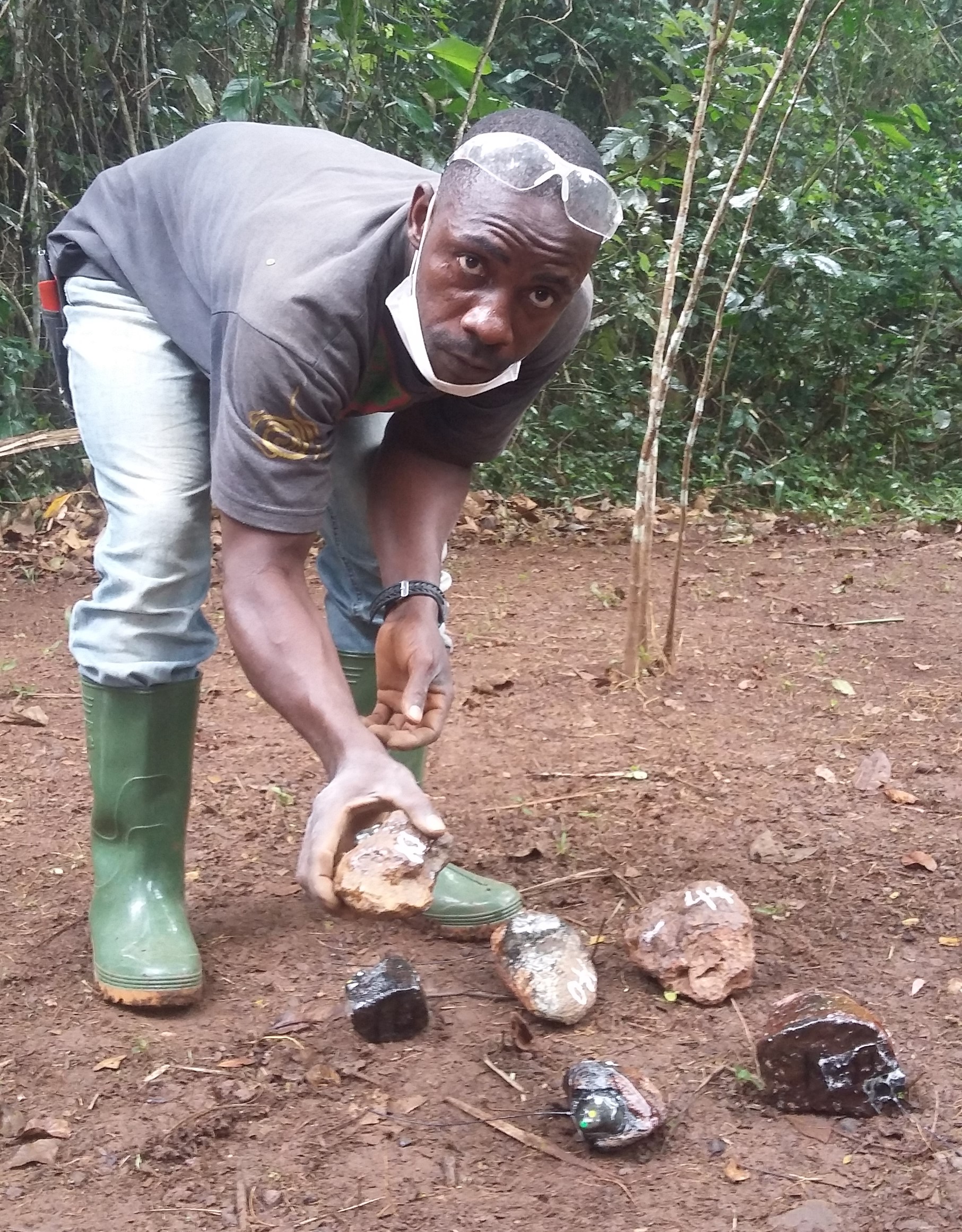
Gouanou (Gouano) Zogbila
[FR] Gouanou a rejoint l'équipe de Bossou en 2009. Il est chargé de la collecte et de la surveillance hebdomadaires des données des caméra-pièges et est un opérateur GPS expert. En 2017 et 2018, Gouanou a cartographié toutes les pistes faites par l’homme et mené une enquête approfondie sur la distribution et la qualité des palmiers à huile dans la forêt de Bossou. Il a également contribué au déploiement et à la surveillance d'outils en pierre suivis par GPS utilisés par les chimpanzés pour le concassage de noix pour un projet financé par la National Geographic Society. Actuellement, Gouanou est engagé dans un projet de recherche en cours dans les montagnes voisines de Nimba, menant une petite équipe d'enquête sur des expéditions bimensuelles pour enregistrer la présence de chimpanzés, la biodiversité et l'activité humaine. En tant que chef d'équipe, il gère les activités d'enquête sur le terrain et contribue à former les membres de l'équipe à utiliser des nouvelles technologies comme la collecte de données en format digital, le GPS et le fonctionnement des caméra-pièges.
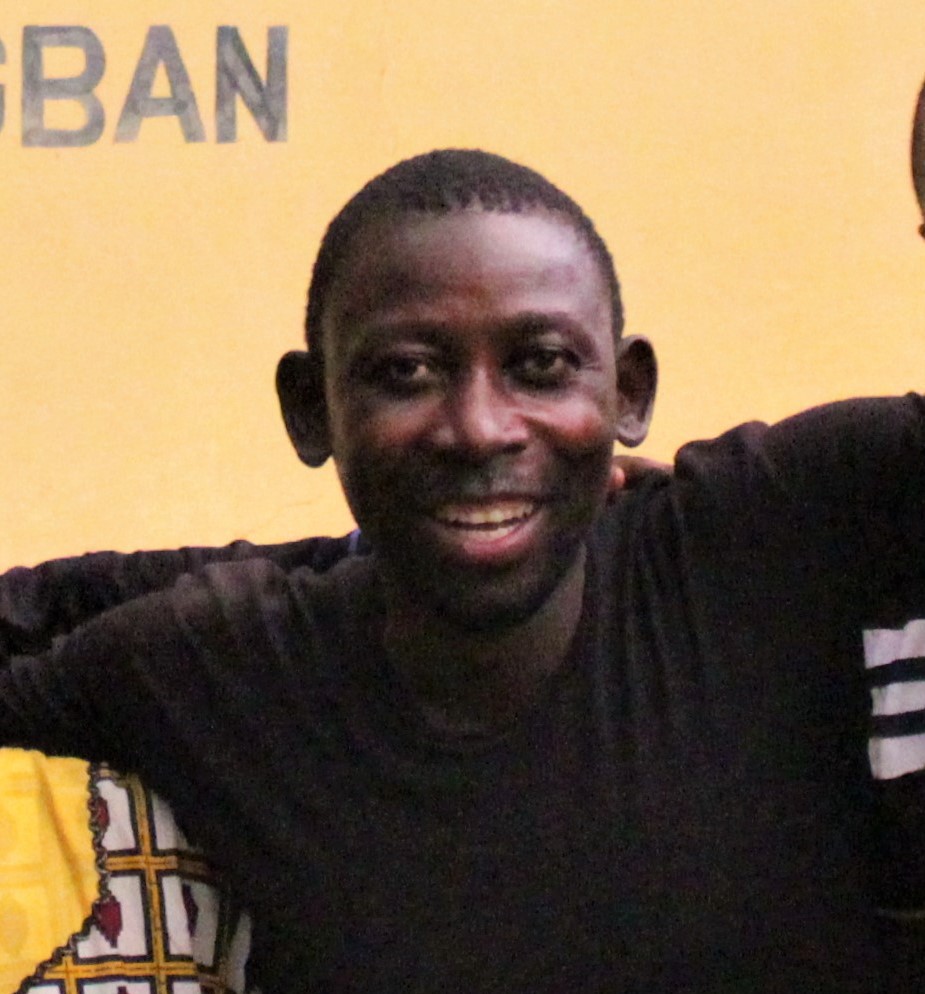
Boniface Zogbila
[FR] Boniface travaille comme guide de Bossou depuis 2000. Il est spécialisé dans la documentation vidéo dans le laboratoire extérieur, où de nombreuses expériences de concassage de noix ont été menées. Boniface est le coordinateur de l'équipe du projet Corridor Vert. Le projet, fondé en 1997, est une collaboration entre le Kyoto University Primate Research Institute (KUPRI), l'Institut de Recherche Environnementale de Bossou (IREB) et les communautés locales, qui cherche le reboisement d’un passage faunique entre la forêt de Bossou et les montagnes voisines de Nimba. Boniface aide à gérer les travaux sur les pépinières, la plantation de jeunes arbres et l'entretien d'un coupe-feu pour s'assurer que les nouveaux arbres sont protégés du feu pendant la saison sèche. Le père de Boniface, Tino Camara, a été l’un des premiers guides de Bossou (1982-1997), et son frère, Gouanou Zogbila, est aussi assistant de terrain.




